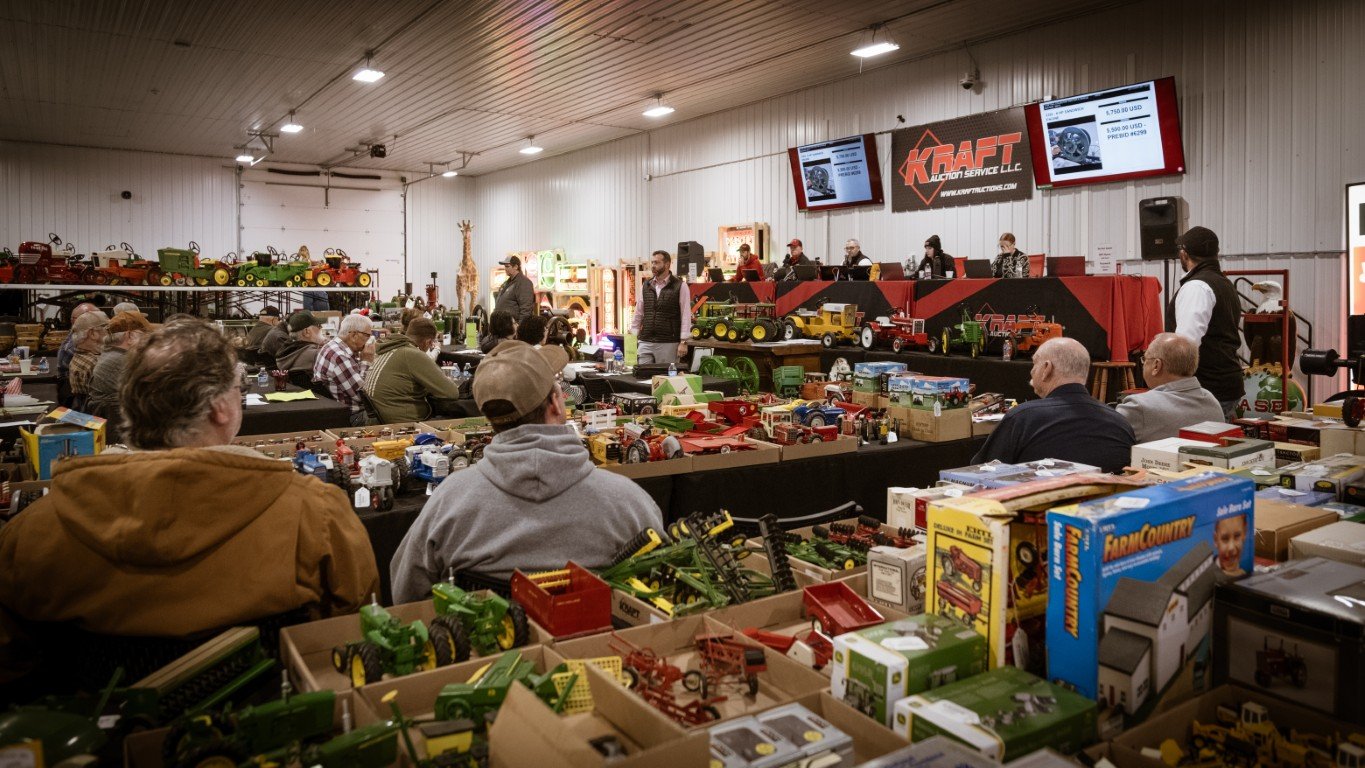The Fascinating Evolution of Auctions Through History
Auctions have a rich and storied history, stretching back thousands of years and evolving alongside human civilization. From their origins in ancient societies to their current role in global commerce, auctions have proven to be a timeless method for buying and selling goods.
1 year ago
The Fascinating Evolution of Auctions Through History
Auctions have a rich and storied history, stretching back thousands of years and evolving alongside human civilization. From their origins in ancient societies to their current role in global commerce, auctions have proven to be a timeless method for buying and selling goods.
Ancient Beginnings
Auctions trace their roots to ancient civilizations, where they served as a practical way to exchange goods and settle debts.
- 500 B.C. Greece: Early records describe auctions in ancient Greece, where women were sold as wives. These auctions used a descending bidding method, starting with a high price and lowering it until a bid was made, provided the minimum price was met. The process even allowed refunds if the marriage did not work out, though “trial runs” of the arrangement were prohibited.
- Rome: The Romans expanded the use of auctions for various purposes, including selling war plunder, estates, and goods to pay debts. The Roman auctioneer, or Magister Auctionarium, started proceedings by driving a spear into the ground—a precursor to the auction gavel. Even the philosopher-emperor Marcus Aurelius auctioned his household items to satisfy financial obligations.
The Medieval and Renaissance Periods
As societies became more structured, auctions grew in sophistication.
- 7th Century: Auctions were used in monasteries to sell deceased monks’ belongings.
- 13th Century England: King Henry VII licensed auctioneers, formalizing the profession.
- 1556 France: Auctions conducted by bailiff-auctioneers became common, often selling goods confiscated from those who had died or been executed.
The Rise of Modern Auctions
By the 17th and 18th centuries, auctions had become popular in Europe, evolving into organized and professional events.
- England: Auctions became social gatherings, often held in coffee houses and taverns. Charismatic auctioneers sold books, art, and other valuables, sometimes using printed catalogs to advertise goods. The first recorded auction of a painting occurred in 1674, and real estate auctions followed in the 18th century.
- Sotheby’s and Christie’s: Two of the world’s most famous auction houses, Sotheby’s (1744) and Christie’s (1766), were founded in London during this period, initially focusing on art sales.
Auctions in America
Auctions crossed the Atlantic with early colonists, becoming integral to American commerce.
- Colonial Era: Auctions were the fastest way to sell crops, livestock, tools, and even entire farms. The fur trade relied heavily on auctions, where pelts were sold to European merchants.
- Civil War Era: Auctions gained prominence during the Civil War, with Colonels conducting sales of confiscated goods. This association persists, as auctioneers are still sometimes referred to as “Colonel.”
The Evolution of Auctioneering
The auction industry has faced challenges and innovations over the centuries.
- The Great Depression: Auctions became a tool for liquidating bankrupt estates during economic downturns.
- Post-War Boom: The mid-20th century saw auctions modernize, with professionals establishing ties to banks, courts, and businesses.
- Technological Advancements: The 1990s ushered in online auctions, with platforms like eBay transforming the industry. Live auctions also adopted new technologies, such as projecting item images on screens to enhance the buyer experience.
The Modern Auction Landscape
Today, auctions are more versatile than ever, covering personal property, real estate, collectibles, and even virtual goods. They take place in live, online, and hybrid formats, appealing to diverse audiences worldwide. Organizations like the National Auctioneers Association ensure ethical practices and offer educational opportunities, maintaining high standards in the industry.
Why Study Auction History?
Understanding the history of auctions enriches our appreciation of this enduring practice. It highlights the adaptability of auctions to meet the needs of different eras and provides valuable insights into the art of selling. Auctions have stood the test of time for their efficiency, excitement, and entertainment—a tradition that continues to thrive.
Whether you’re a buyer, seller, or enthusiast, auctions remain a fascinating and dynamic part of our cultural and economic heritage.
